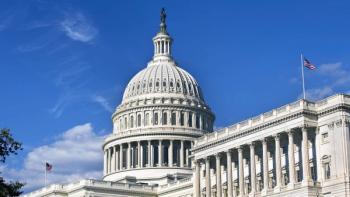
Combating COVID-19 is bolstering efforts to limit patent protections on innovative medicines and vaccines.

Combating COVID-19 is bolstering efforts to limit patent protections on innovative medicines and vaccines.

The White House sent Congress a summary of “topline” funding requests that continue efforts to combat the coronavirus pandemic and to restore the nation’s economic health.

A FDA report cites multiple ongoing violations that undermine assurance of quality in products from this plant and the need for a continuing “pause” in production.

FDA has called a halt in production of vaccine drug substance and to quarantine all remaining product at the Bayview plant.


Patrizia Cavazzoni will become the director of the Center for Drug Evaluation and Research, and Janet Woodcock remains in limbo as the temporary head of FDA.

Even before Emergent disclosed that it had to discard 15 million doses of the J&J vaccine drug substance, FDA inspectors had uncovered multiple deficiencies and quality control issues.

Concerns over vulnerability in the supply chain has increased pressure on FDA to renew site visits of domestic and foreign facilities.

The White House’s American Jobs Plan includes investment in new technologies for rapid scale up of vaccine production, in expanded emergency production capacity and enhanced US infrastructure for biopreparedness, and in greater production onshore of APIs.

The need for added revenues to fund billion-dollar infrastructure improvements has fueled challenges to industry pricing practices.

Is FDA approving too many new drugs and added indications too quickly based on surrogate endpoints that fail to pan out?

The Federal Trade Commission is launching a broad review of drug-company mergers, with an eye to examining how such actions can harm competition in the biopharmaceutical industry.

With no final nomination of FDA commissioner coming from the White House, concern has mounted among regulated industry and interested stakeholders that FDA operations and stature will suffer without a permanent commissioner able to articulate new policies and gain support for innovative programs.

Reviews of FDA initiatives and activities recapitulate efforts to assess and approve new drugs, generic drugs, and biologics and strategies for advancing new initiatives.

To prevent future production delays of critical products, the Biden administration is examining supply chain vulnerabilities for pharmaceutical ingredients as part of a longer-range consideration of products important to public health.

FDA issued a public statement and press release, along with a sharp warning letter rebuking AcelRx Pharmaceuticals for its messaging on painkiller Dsuvia.

Scientists and policy makers are looking more sharply at the lag in identifying and producing medicines to moderate early infections and to treat seriously ill patients.

The selection of a new FDA commissioner has become a contentious issue in Washington, as the White House delays a decision and interest groups line up behind competing candidates.

FDA puts applications on hold as the agency limits alternative oversight methods.

With Democrats controlling Congress and the White House, expectations are high that policy makers will revise certain coverage and payment policies.

The broader national strategy sets seven goals, some fairly general, such as building public trust, safely reopening schools and businesses, advancing racial and ethnic equity, and restoring US global leadership.

Since FDA authorization of two innovative mRNA vaccines to combat COVID-19 in late 2020, 30 million doses have been distributed, but only 4 million people were vaccinated in December 2020, and just 13 million have received shots so far.

The vetting and authorizing of important new therapies remained productive in 2020, despite the need to devote considerable resources to dealing with COVID-19 related approvals and policies.

President Trump signed the COVID-19 package, which appropriates $2.3 trillion to finance the federal government through September 2021 and provides support for individuals and entities suffering from the economic crisis wrought by the pandemic.

Success in combatting the pandemic depends on the ability of manufacturers to quickly and efficiently produce and distribute the huge quantities of vaccines demanded by the United States government and public health organizations around the world.

The first public announcement from the Biden-Harris transition team was to name members of a COVID-19 advisory board charged with initiating policies and actions to combat the fast-rising infection rate in the United States

As part of the administration’s campaign to reduce the United States’ reliance on an increasingly global pharmaceutical supply chain and to minimize potential shortages for critical drugs, FDA has published a list of those drugs and medical products considered critical for addressing public health emergencies.

The much-anticipated meeting of FDA’s vaccine advisory committee this week is slated to address a number of critical issues related to testing and approval of vaccines to prevent COVID-19 infection.

With little more than a month to go until the national election, President Trump announced a revised initiative designed to reduce what consumers pay for prescription drugs, while also promising to protect coverage for pre-existing health conditions.

Fears about overly accelerated development programs has heightened demands for wider access to information on study protocols, statistical analysis plans, and early results.